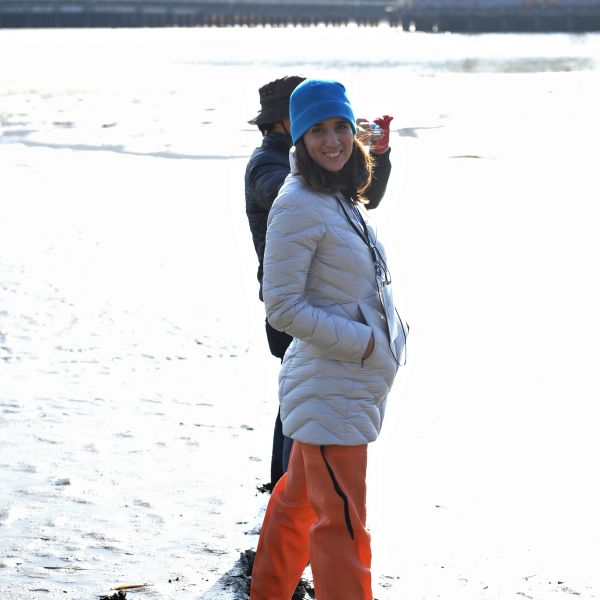Image

-
Rocio Lozano-Knowlton
MERITO Program Cooridnator, NOAA CINMS & CDE
- CCC Fellow
The ‘My School’s Energy Diet’ project’s primary audience are 8-12th grade students. The secondary audiences are the students’ teachers and school administrators. The project will launch in January 2015 and end in June 2018 (3 year project). The primary goal is to increase students’ knowledge of climate science, awareness of anthropogenic climate change, and stewardship for Earth and oceans, as indicated by at least a 50% increase in pre- and post-project evaluation surveys of participating students and delivery of the end of school year project proposal. The secondary goal is to help schools reduce their carbon footprint. Students will be immersed in climate science and the engineering practices of energy management to deeply understand and consciously address climate change. Students will assess their school’s carbon footprint in teams of 4 to 5 students per class and present their findings of energy audits in Kilowatt units. Their findings will show energy consumption per activity and/or processes over time. They will research energy saving methods and practices. Schools' energy diet solutions may include, among others: methods further reducing, reusing, recycling, and composting waste products; changing the school’s landscape to native and drought tolerant plants; changing cafeteria materials to reusable or compostable plates and utensils; and cost-effective solar energy options. Students will present their findings to their peers during an end-of year science fair, then the best projects of each school will be presented to school district administrators, and at science fairs, Sanctuary Advisory Meetings, and/or City Council meetings.
By working primarily with Title 1 schools, we will target mainly economically disadvantaged and Hispanic students who are severely underrepresented in STEM careers. Students will have pride and ownership over their project outcomes while learning and using the most up to date climate and environmental science in EPA, NOAA, and other agencies. Partnering organizations include EPA, NOAA weather service, NOAA Office of National Marine Sanctuaries, Jean-Michael Cousteau Ocean Futures Society, CREEC, Ventura County Office of Education, and CSU Channel Islands. This project closely relates to students’ and schools' personal daily actions at school premises at which they can make a difference.
Rocío is the Director of the MERITO (Multicultural Education for Resource Issues Threatening Oceans) Foundation, a recently formed non-profit organization dedicated to ocean protection by providing programs and products to multicultural audiences that build ocean and environmental stewardship, help increase understanding of ocean-related threats, and motivate culturally diverse students to pursue careers in ocean science or resource protection.
From 2004 to 2013, Rocío worked for NOAA Channel Islands National Marine Sanctuary as the MERITO Program Coordinator providing bilingual ocean conservation education and outreach services to over 6,000 underprivileged and culturally diverse students. Her work included co-development of the MERITO curriculum (now adapted by various school districts in the Southern California); leading hundreds of island, coastal and watershed field experiences for students, professional development for more than 200 teachers and raising 60-70% of program costs by leveraging federal dollars, landing critical grants and eliciting substantial in-kind contributions from local partners. Rocío has also helped create impact for ocean conservation through other NOAA programs including at International Marine Protected Areas Capacity Building Program’s workshops in Central America, Indonesia, and more recently Korea. In 2010, Rocio led a first-ever Spanish programming component of a research and education mission from the Aquarius underwater habitat in Key Largo during theAquarius 2010: If Reefs Could Talk. This mission brought the underwater world via live Internet and point-to-point broadcasts beamed directly into schools and aquariums across USA and to four Spanish-speaking countries.
Prior to her work in California, Rocío worked as a marine resource protection consultant for various marine conservation organizations in Mexico while she co-owned and directed Baja Quest, an ecotourism and SCUBA diving business from 1995-2004. Rocío has a B.Sc. in Oceanography from Universidad Autónoma de Baja California in Mexico, and a M.Sc. in Marine Resource Protection from Herriot Watt University in Scotland. She is an outdoor enthusiast, loves to travel, SCUBA dive, and, with her family, strives to live in an environmentally sustainable manner.